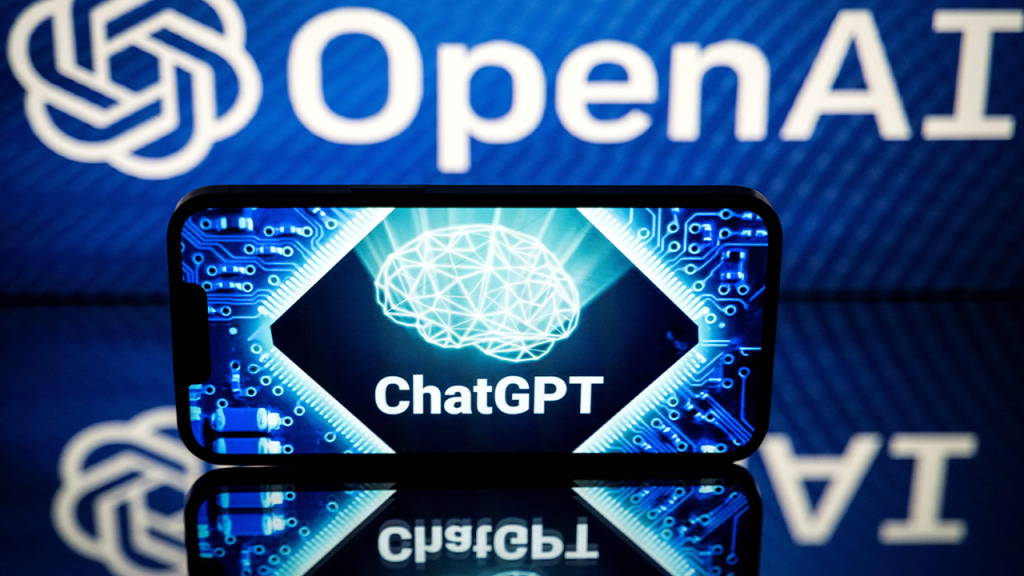
With the rapid emergence of artificial intelligence, which is quickly making its way into the daily lives of individuals around the world, there are a lot of questions circulating about the new technology.
Artificial intelligence has existed for a long time, but its capacity to emulate human intelligence, and the tasks that it is able to perform have many worried about what the future of this technology will bring.
Here are answers to some of the big questions surrounding artificial intelligence.
RESEARCHERS PREDICT ARTIFICIAL INTELLIGENCE COULD LEAD TO A ‘NUCLEAR-LEVEL CATASTROPE’
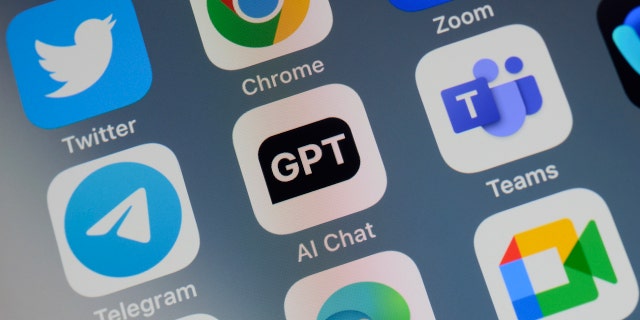
There are lots of questions about artificial intelligence, especially with the emergence of AI chatbots like ChatGPT. (iStock)
- Who invented artificial intelligence?
- What are the leading artificial intelligence companies?
- How does artificial intelligence work?
1. Who invented artificial intelligence?
There are major names that have often been credited as the founding fathers of artificial intelligence. One such individual is Alan Turing, a British logician, computer scientist and mathematician who made major contributions to the field before his death in 1954. These include his creation of the Turing Machine, which implements computer algorithms, and his famous work “On Computable Numbers, with an Application to the Entscheidungsproblem”, concepts which paved the way for the function of modern computers.
Warren McCulloch and Walter Pitts wrote “A Logical Calculus of the Ideas Immanent in Nervous Activity,” which built on the artificial intelligence model begun by Turing by describing a neural network, according to HistoryofInformation.com. A neural network enables computers to process information in a way that simulates human brain activity. John McCarthy is credited with coining the term in 1955, according to ComputerHistory.org. He also was the inventor of Lisp, which became the preferred programming language for AI work.
2. What are the artificial intelligence companies?
There are lots of players in the AI game. Many companies are widely using artificial intelligence as they conduct business and compete across the globe.
ARTIFICIAL INTELLIGENCE REMAINS A DANGEROUS MYTH
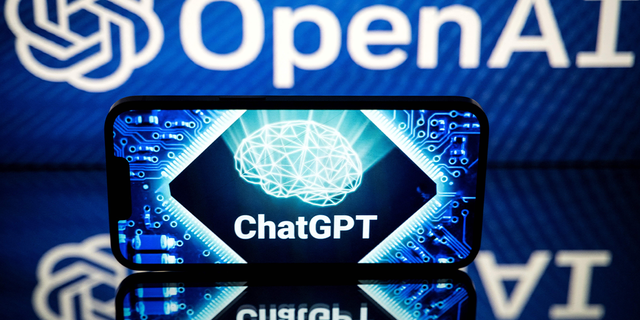
ChatGPT is an AI chatbot that was created by the company OpenAI. ((Photo by LIONEL BONAVENTURE/AFP via Getty Images))
One of the biggest artificial intelligence companies that has made a splash recently is OpenAI, which has a partnership with Microsoft. If you aren’t familiar with OpenAI, you are probably familiar with its product, ChatGPT.
ChatGPT has become one of the most talked about AI systems in history. It is “trained to follow an instruction prompt and provide a detailed response,” according to the OpenAI website. When operating ChatGPT, a user can type whatever they want into the system, and they will get an AI generated response in return.
ChatGPT has sparked concerns with the public, and even some AI leaders like Elon Musk with respect to ethical guidelines for AI regulation.
OpenAI’s ChatGPT has dominated the AI conversation of late, but many other companies are exploring, developing, and investing in the revolutionary technology.
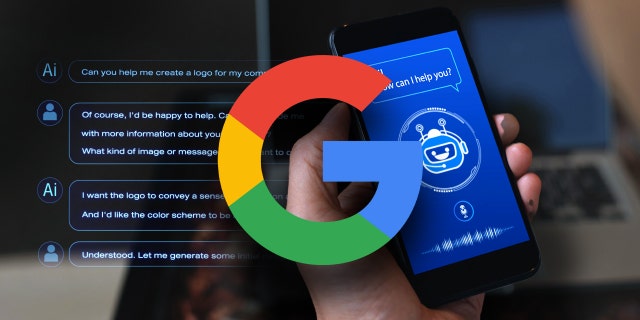
Google has its own chatbot called Bard. (iStock)
ARTIFICIAL INTELLIGENCE ‘GODFATHER’ ON AI POSSIBLY WIPING OUT HUMANITY: ‘IT’S NOT INCONCEIVABLE’
Google recently launched its own chatbot AI system called Bard. Adobe also offers AI products, including Sensei, which is billed to “bring the power of AI and machine learning to experiences” and Firefly, which employs generative AI technology.
Amazon also uses AI. If you have ever used Amazon, you are accustomed to seeing products that are recommended for you. This is one way the company uses AI, by figuring out what kind of products you may be interested in purchasing based on your previous search and purchase history. Amazon also has its AI assistant Alexa hooked up to all its Echo devices. You can ask Alexa any question you would like, and the system will give you an answer.
Apple offers the AI software Siri, which works similarly to Alexa. AI is also used in Apple Maps and with its face identification capabilities.
Baidu is a Chinese company which is a competitor to Google. The platform has developed voice cloning technology which is regarded as highly authentic, prompting concerns of deepfakes. In 2018, its research arm clamed the ability to clone a human voice in 3 seconds.
IF AI ‘SPINS OUT OF CONTROL,’ WILL THE BOTS REFELCT VALUES FROM CHINA OR THE US?

Tesla vehicles are an example of artificial intelligence in practice although the company’s founder, Elon Musk, has spoken out about regulating AI. (Jeremy Moeller/Getty Images)
IBM is another AI pioneer, offering a computer system that can compete in strategy games against humans, or even participate in debates. JD.com, the Chinese e-commerce giant, has also made large investments in AI. Company founder Richard Liu has embarked on an ambitious path to be 100% automated in the future, according to Forbes.
Another commonly known company with strong artificial intelligence roots is Tesla, the electric vehicle company founded by Musk that uses AI in its vehicles to assist in performing a variety of tasks like automated driving.
3. How does artificial intelligence work?
An analysis of how artificial intelligence functions is difficult due to its extreme complexity.
Fundamentally, artificial intelligence works by “combining large amounts of data with fast, interactive processing and intelligent algorithms, allowing the software to learn automatically from patterns or features in the data,” according to SAS.com.
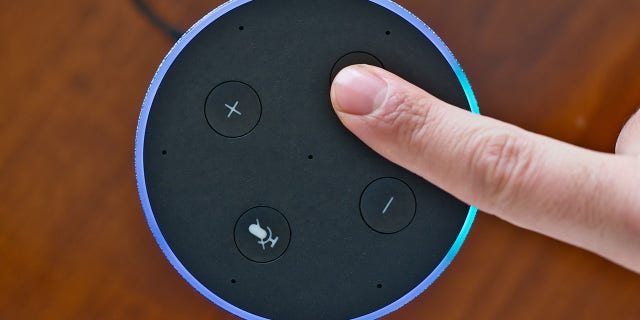
Amazon’s Alexa, which is found on many of the company’s devices, like the Echo, is an example of AI at play. (iStock)
AI EXPERT WARNS OF TOO MUCH ‘HYPE’: HUMANS WILL STILL BE IN CHARGE, WON’T BE ‘PETS’ TO NEW TECH
In other words, different types of artificial intelligence software are, in a sense, able to study and absorb the information that they need, allowing them to learn, adapt, and improve, in a way that mirrors human learning.
Artificial intelligence is an umbrella term that covers lots of different areas of technology.
There are four main types of artificial intelligence: reactive machines, limited memory, theory of mind, and self-awareness, according to Govtech.com.
CLICK HERE TO GET THE FOX NEWS APP
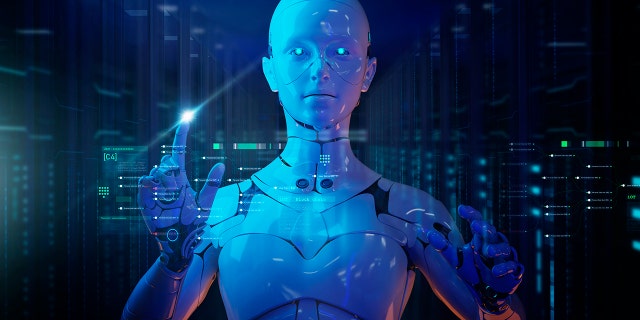
There are four main types of AI, reactive machines, limited memory, theory of mind and self-awareness. (iStock)
Reactive machines refer to the most basic kind of artificial intelligence in comparison to others; this type of AI is unable to form any memories of its own or learn from experience.
Limited memory artificial intelligence, unlike reactive machines, are able to look into the past. A common example of a limited memory artificial machine is a self-driving car.
Theory of mind AI involves very complex machines that are still being researched today, but are likely to form the basis for future AI technology. These machines will be able to understand people, and develop and create complex ideas about the world and the people in it, producing their own original thoughts.
Finally, the last frontier in AI technology revolves around machines possessing self-awareness. While leading experts agree that technology such as chatbots still lacks self-awareness, the skill at which they engage in mimicry of humans, has led some to suggest that we may have to redefine the concepts of self-awareness and sentience.

 Latest Breaking News Online News Portal
Latest Breaking News Online News Portal




